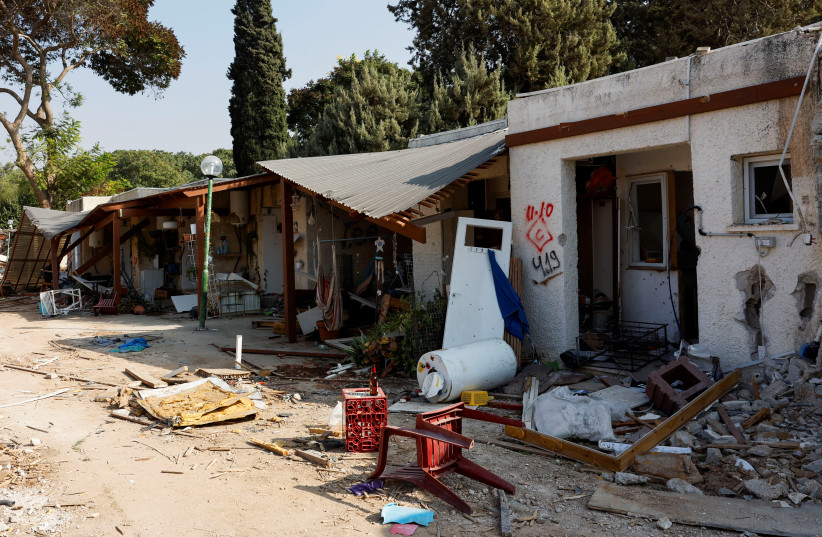Can a unified Israel rise from the ashes of the Hamas war?

Following months of bitter division around the proposed judicial overhaul, Israelis came together in response to the horrors of October 7 and have been reminded that perhaps our most precious asset is our internal solidarity.
We have learned that Israel cannot afford the politics of division if it wants to survive and prosper in a hostile region. And while our enemies have clearly misjudged us in this case, we are all paying the price for their misjudgment.
This is why a generic call for unity is not enough.
The challenge that lies before Israelis now involves channeling the spirit of unity and goodwill that has characterized our society since the outbreak of the war into reforms that will make sure the State of Israel emerges more secure and prosperous, with robust constitutional arrangements, so that we are better prepared to weather the tough times that are sure to lie ahead.
There is no doubt that a national reckoning, including a thorough investigation into the failures that made October 7 possible, will be essential. Clearly, we need to rethink Israel’s security concepts and interrogate past notions about our ability to deter regional terrorist organizations and their sponsors, and how to recalibrate our relationship with the Palestinians in a manner that provides a horizon of hope but does not compromise on our very real security needs.

At the same time, we must recognize that neither a national commission nor any other sort of investigation focused on the war will produce a blueprint for domestic reform.
Even if such a mechanism did exist, it would only bring forward truths that led to the war – the process of internal renewal and reform that is needed goes far deeper than this, and we must begin this process right away.
There is good reason to be cautiously optimistic when we look at the united home front we see today. While we entered this war more divided than ever – and with large numbers even saying that they believed civil war to be a possibility – Israelis today are united in their determination to win this war. There are large majorities in favor of the dual-stated war goals: ending Hamas’s de facto rule in Gaza and returning the hostages home to their families; and there is a very high level of trust in the IDF and its commanders, despite the horrible failure at the war’s onset.
The dedication exhibited by the men and women of the IDF – including hundreds of thousands of reservists who have been away from their families for nearly three months – is truly inspiring. Moreover, fully 68% of the population has volunteered in some way to help those in need during these trying times. More and more ultra-Orthodox Jews are exhibiting interest in playing a role within greater Israeli society – and Arab Israelis, far from launching the much-feared “internal front,” are expressing a higher degree of identification with their country than ever before. Perhaps this explains why Israelis are more optimistic about the country’s future now than they were before the war.
These are the conditions under which we have an opportunity to unite around our shared destiny; to identify and codify the fundamental values around which we have broad consensus as a society.
But how can we build on this unity and move forward on a path of renewal?
How can we push for post-war unity in Israel?
For such a process to be successful, it must be rooted in a genuine attempt at forging a consensus around a constitutional framework that will guarantee the rights of all Israelis and define the relationship among our three branches of government.
The events of the past year demonstrate that we have simply been scraping by without such a structure and that it is high time Israel ceased being the global constitutional exception. It is irresponsible to ask Israelis to continue risking their lives for a country while its character and very identity are subject to radical change by a slim parliamentary majority.
IDEALLY, THE adoption of a new constitutional framework will come together with the passage of the long overdue electoral reform that will make our system of government more stable, more efficient, and more responsive to the people it represents, along with measures to strengthen local government as a way of diffusing over-centralized power and allowing the diverse communities that make up Israeli society to govern themselves with a greater degree of autonomy.
While these may seem like lofty goals that will be very hard to achieve, we should take heart from the fact that almost 70% of Israelis consistently support a constitution based on the principles of Israel’s Declaration of Independence.
Israel has proven time and again that we are the country that defies expectations, succeeds where others have not, and is willing to make sacrifices to ensure that our future generations are better off than we are. This is being proven daily on the battlefield, with the painful losses of so many of our best and brightest who are paying the ultimate price to make Israel safer. It is up to the rest of us to ensure that the society that emerges from this war is stronger than ever.
As we rise from the ashes of this horrific war, we must use this rare moment of unity not only to rethink our security conception and imagine a better future for the Israeli people but also to strengthen our democratic institutions and develop into the constitutional democracy and Jewish state that our founders envisioned.
The writer is president of the Israel Democracy Institute.





Comments are closed.